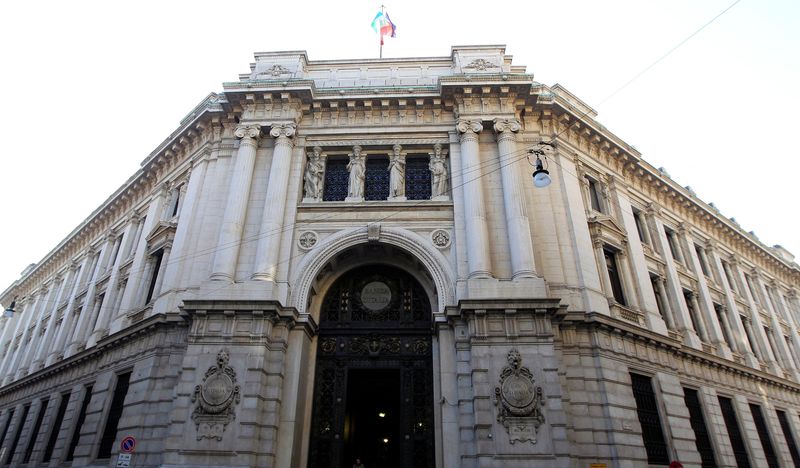By Giuseppe Fonte
ROME (Reuters) - Italy's rising bond yields are a "wake-up call", the country's central bank said on Monday, urging the government to handle its budgetary policy with "extreme prudence".
The Treasury's fiscal framework presented last month hiked next year's deficit goal to 4.3% of gross domestic product (GDP) from a previous 3.7%, and targeted its return below the European Union's 3% ceiling only in 2026, with virtually no debt reduction over the same period.
The plan was poorly received by markets, with the closely-watched gap between the yields on Italian 10-year BTP bonds and equivalent German Bunds exceeding 208 basis points on Monday, the widest since January.
"The high debt is a serious element of vulnerability," the Bank of Italy said in a testimony to parliament.
"It exposes the country to the risk of tensions on financial markets and increases the cost of debt for the state, and in turn for households and businesses."
Prime Minister Giorgia Meloni will detail her 2024 budget next week amid a darkening economic outlook.
The Bank of Italy said weakness in economic activity continued in the third quarter of this year, after GDP shrank by 0.4% in the previous one.
Moreover, it added, risks to growth are strong and downwards, as geopolitical tensions linked to the conflicts in Ukraine and in Israel are generating great uncertainty.
The bank therefore urged the government to be more ambitious in its debt reduction targets, saying this would make it less likely that Rome would have to adopt draconian budget cuts in the case of negative shocks.
Italy's debt, proportionally the highest in the euro zone apart from Greece's, is targeted at 139.6% of GDP in 2026, just marginally down from 140.2% expected this year.
The targets factor in proceeds from asset disposals worth around 21 billion euros ($22 billion) planned over the next three years, meaning that without the sell-off plan the debt would rise.
Over the past decade, proceeds from privatisation programmes have averaged less than 0.1% of national output per year, the Bank of Italy said.
The country's audit court expressed more explicit scepticism in a separate parliamentary hearing on Monday.

Guido Carlino, the chairman of the court, said the privatisation targets may be "intended to paint a more promising picture of the prospects for the debt-to-GDP ratio and therefore constitute a substantial window dressing".
($1 = 0.9492 euros)